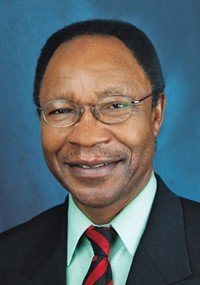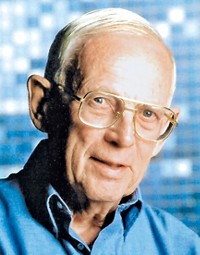Advertisement
Grab your lab coat. Let's get started
Welcome!
Welcome!
Create an account below to get 6 C&EN articles per month, receive newsletters and more - all free.
It seems this is your first time logging in online. Please enter the following information to continue.
As an ACS member you automatically get access to this site. All we need is few more details to create your reading experience.
Not you? Sign in with a different account.
Not you? Sign in with a different account.
ERROR 1
ERROR 1
ERROR 2
ERROR 2
ERROR 2
ERROR 2
ERROR 2
Password and Confirm password must match.
If you have an ACS member number, please enter it here so we can link this account to your membership. (optional)
ERROR 2
ACS values your privacy. By submitting your information, you are gaining access to C&EN and subscribing to our weekly newsletter. We use the information you provide to make your reading experience better, and we will never sell your data to third party members.
Diversity
Black chemists speak out about inequity in STEM
They share stories of injustice and offer suggestions on how the community can provide support and solidarity
by Linda Wang , Megha Satyanarayana
June 19, 2020

When the video of George Floyd surfaced, I immediately tuned out because as the mother of an African American male, I simply couldn’t watch. Why? Because there is a part of me that has not recovered from my own personal trauma; my 14-year-old son was the victim in a shooting incident in 2018. When I received the call concerning my son, I went to class and struggled to teach. After which I couldn’t concentrate. I later explained to my students what had happened to my son. I booked a flight and went to Wisconsin, where my son was spending the summer with my mother.
This story from Kayunta Johnson-Winters, an associate professor of chemistry and biochemistry at the University of Texas at Arlington, is one of several C&EN heard from Black chemists in the wake of the killing of George Floyd in police custody. Johnson-Winters continues:
Other Black chemists shared with C&EN similar stories of injustice within the chemistry community:

As a 5th year chemistry PhD student at New York University, who had been the only black student in the department until the past year, who has devoted months of exhaustive voluntary work toward combating diversity and inclusion shortcomings on behalf of the department and institutes within, I have waited years to be adequately acknowledged. Only after convening fellow minority students to draft a petition detailing our demands for racial justice did my superiors finally address the persistent violence toward Black people and ensuing trauma inflicted upon graduate students. Institutional silence sends a message that is loud and clear: some faculty are more concerned with political correctness than they are about assuaging the pain imposed upon their black students and colleagues. Silence speaks deafeningly to the effect that optics are valued above denouncing the malignant white entitlement that is laying black communities to waste. And yet, statements only scratch the surface. True institutional leadership will be judged by whether the faculty heed the demands of their black students and enact lasting structural change.
On social media, some Black chemists shared their experiences of microaggressions:
Being asked if you’re okay only because academia has become more aware of racial injustices when you’ve clearly not been okay before. #BlackintheIvory
— Brea Manuel (@brea_manuel3) June 9, 2020
I thought "I've rarely felt racism or discrimination directly" and then I think about how many times I've been told to my face that I don't act or talk "black". I wish I had the courage to call it out then, I do now. #BlackLivesMattters #BlackandSTEM
— Heather Snell, PhD (@HeatherDSnell) June 7, 2020
Some Black chemists shared ways they have worked to change the culture:

As a former assistant professor of chemistry, I would frequently incorporate biographical narratives into the chemistry curriculum to broaden the image of chemists in the classroom. Most chemistry textbooks do not include images of chemists of color. If we want to establish an inclusive chemistry workforce, students need to see themselves reflected in the classroom. Students can write essays about Black organic chemists like Alice Augusta Ball, Dr. Percy L. Julian, and Dr. Saint Elmo Brady, and we can align these scientists’ stories with course content. These chemists should be celebrated because of their remarkable scientific achievements, which occurred during a time when opportunities for chemists of color were severely limited.
Whether I want it to or not, my whole being is a political statement.
Black. Woman. Biomedical Engineer. PhD. It gets under people’s skin in any way I choose to celebrate it, so I’m gonna celebrate it some mo’, dedicate it some mo’, recognize it some mo’.
I dedicate my PhD to any person that has ever felt unseen, unheard, and underrepresented, especially in STEM.
And they offered their advice on how allies can help:

For colleagues who want to support their black colleagues and students, I would encourage them to interrogate or question what is happening around you. Be willing to be in uncomfortable spaces, without debilitating guilt, to hear the truth of your colleagues and students. Be courageous in acknowledging the realities of systemic and institutional racism and our personal conscious and unconscious biases and how these influence our lived experiences today, not just yesterday or days gone by. Be committed to our shared humanity and the truth of our human experience. This is more than simple words meant to heal hurt and anger. There is an old quote that ‘actions speak louder than words.’ Ask yourself, your colleagues (both those of color and those who are not of color), what actions must we take collectively, collaboratively, together.

Open, honest, uncomfortable conversations are a start to healing. When all people can understand what Black people (or any marginalized community) feel, then hopefully they can allow their compassion to set in, which would allow them to put themselves in the Black community’s shoes and try to feel what it would be like to decide to leave your house everyday, not knowing who is targeting you or your family, nor if you will make it home just because of how you look, how you feel, who you love, who you worship, etc. We need these conversations, as well as active engagement in these conversations, and all parties involved should be open to accepting criticism, if warranted, and listening with their heart to the other party and not focusing on the individual but attacking the problem (or the systematic and systemic problems) together to effect change. I am not sure how an ‘ally’ can approach someone to start these conversations, but ultimately that ‘ally’ should be genuine in their pursuit to effect change and not just appear genuine, because people can feel when you are genuine or not. They must also be in it for the long haul. Being genuine is critical.
University of Michigan chemistry graduate student Matthew R. Culberson calls for a different future for Black chemists.
im all about peace and tranquility, education and social work, research-based evidence and equity. this is partly why i went to graduate school. Is a safe, inclusive, and equitable America for Black people too much to ask for?
— 〽️atthew R. Culberson 👨🏽🔬🤟🏽 (@Dr_Culberson) June 2, 2020










Join the conversation
Contact the reporter
Submit a Letter to the Editor for publication
Engage with us on Twitter